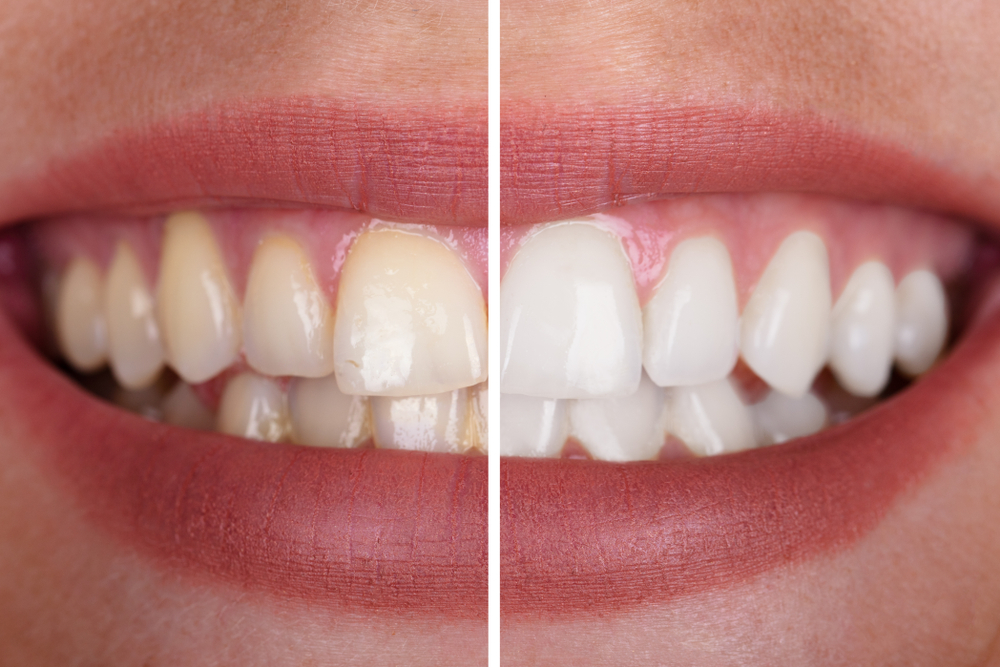Welcome to our complete guide to caring for your mouth following oral surgery! We want you to have the best experience and give you as smooth of a recovery as possible while maintaining good oral health. Whether you have just undergone wisdom teeth removal, dental implant surgery, or any other oral surgery, taking proper care of your mouth is essential to promote healing and prevent infection.
This guide will cover everything you need to know, from caring for your mouth and what to eat to when to call your dentist for any concerns. So, let’s dive in and make sure you have all the information you need for a successful recovery!
Understanding Oral Surgery and Its After-Effects
The most common oral surgery at Parkcrest Dental includes wisdom teeth removal and dental implant surgery. Our doctors are very experienced and knowledgeable, and can help you get the smile and bite you want for comfort and confidence.
We’ll discuss what you can expect after your oral surgery at the Parkcrest Dental Group office.
Swelling
You will likely notice swelling and discomfort following your oral surgery. Swelling is a normal part of the healing process and can be treated with over-the-counter pain medication and ice packs, as recommended by your dentist or oral surgeon. It’s important to rest and take it easy after surgery to promote healing and minimize discomfort.
Bleeding
It’s normal to experience some bleeding immediately after surgery, but it should gradually decrease over time. If bleeding persists or becomes excessive, contact your dentist or oral surgeon for further guidance.
Limited Jaw Mobility
In some cases, oral surgery may lead to limited jaw mobility or difficulty opening your mouth entirely. These symptoms are usually temporary and should improve as your mouth heals. If you’re concerned about this, communicate with your dentist or oral surgeon.
Everyone’s experience with oral surgery may differ, so don’t hesitate to reach out to your dentist if you have any concerns or questions.
Comprehensive Steps to Care for Your Mouth After Oral Surgery
After oral surgery, taking care of your mouth is crucial to promote healing and well-being.
1. Follow your dentist’s instructions.
Your dentist or oral surgeon will give you instructions for post-operative care. It is essential to carefully follow these instructions to promote healing and prevent complications.
2. Manage pain and swelling.
Take any prescribed pain medication as directed by your dentist. You can also use ice packs on the outside of your mouth to reduce swelling. Remember, only apply ice for short periods and use a cloth barrier to protect your skin.
3. Keep the surgical site clean.
Gently rinse your mouth with a warm saltwater solution or a prescribed mouthwash to keep the surgical site clean. Be careful to brush the surgical area only after your dentist gives you the go-ahead.
4. Eat soft foods.
Stick to a diet of soft and liquid foods for the first few days following surgery. This includes foods like yogurt, mashed potatoes, soups, and smoothies. Avoid hard, chewy, or spicy foods that could irritate the surgical site.
5. Avoid tobacco and alcohol.
Smoking and alcohol consumption can slow down healing and increase complications. If you regularly use these substances, it is best to abstain from these substances until you are fully healed.
6. Practice good oral hygiene.
While you may need to avoid brushing the surgical site initially, it is important to continue brushing and flossing your other teeth gently. This will help prevent infection and maintain overall oral health.
Remember, every person’s recovery process may vary, so it’s essential to consult your dentist or oral surgeon for personalized advice and any concerns you may have.
A Guide to a Recovery-Friendly Diet Post Oral Surgery
Eating the right foods after oral surgery plays a crucial role in your recovery. While you may be eager to indulge in your favorite treats, it’s essential to choose foods that are gentle on your mouth and promote healing.
For the first few days following surgery, opt for soft and easily chewable foods. Foods like yogurt, mashed potatoes, soups, and smoothies are excellent choices as they require minimal effort and won’t irritate the surgical site. These foods also provide the necessary nutrients to support the healing process.
Avoid hard, chewy, or spicy foods, as they can be difficult to chew and may cause discomfort. Stay away from crunchy snacks, tough meats, and spicy dishes until fully healed. These foods can damage the surgical site or cause unnecessary pain. Avoid overly hot or cold foods, too, as they can cause pain or discomfort.
Remember to drink plenty of water. Keeping your body well-hydrated is essential to support healing and overall health.
Related Post: Eat the Right Foods After Oral Surgery for the Best Results
Common Missteps in Oral Care Post-Surgery: What to Avoid
Here are some things you should avoid after your oral surgery and why.
1. Skipping your follow-up appointments.
Attending your scheduled follow-up appointments with your dentist or oral surgeon is crucial. These visits allow them to monitor your healing and progress, address concerns, and adjust your treatment plan. Skipping these appointments can delay healing and potentially lead to complications. Your doctor is highly skilled and knows what to look for during recovery.
2. Neglecting oral hygiene.
While it’s important to avoid brushing the surgical area initially, you should continue to practice good oral hygiene through brushing and gently flossing. Ignoring oral hygiene can increase the risk of infection and hinder the healing process.
3. Smoking or using tobacco products.
Smoking or using tobacco in any form can significantly impede the healing process. It restricts blood flow to the area where you had surgery, making it harder for your body to heal correctly. Smoking also increases the risk of infections and complications.
4. Consuming alcohol.
Alcohol can interfere with the body’s natural healing process and delay recovery. It can also interact with pain medication and increase the risk of bleeding and complications. It’s best to avoid alcohol until you are fully healed.
5. Ignoring signs of infection or complications.
If you notice any signs of infection, such as persistent pain, swelling, or discharge, it’s essential to contact your dentist or oral surgeon immediately. Disregarding these signs can lead to more serious complications and hinder the healing process.
When Is the Right Time to Contact Your Dentist or Oral Surgeon?
It’s essential to pay attention to any symptoms or difficulties you may experience after oral surgery. While some discomfort and swelling are normal after surgery, certain signs may require immediate attention from your dentist.
Worsening Pain
If you are experiencing severe or worsening pain that is not relieved by your prescribed pain medication, it’s essential to reach out to your dentist. This could indicate an infection or other complications that need to be addressed.
Excessive Bleeding
Excessive bleeding that does not subside or starts again after it has initially stopped is another red flag. Contact your dentist if you are concerned about the amount or duration of bleeding.
Difficulty Breathing
Swelling that is severe, worsening, or accompanied by difficulty breathing or swallowing should not be ignored. These symptoms could indicate a serious allergic reaction or infection, and immediate medical attention is necessary.
Strong Odor
If you notice pus or a foul odor coming from the surgical site, it may be a sign of infection. Contact your dentist promptly so that they can evaluate the situation and provide appropriate treatment.
Other Signs to Watch For
If you experience fever, difficulty opening your mouth, or persistent numbness or tingling in the surgical area, contact your dentist immediately, as these may be signs of other problems.
Everyone’s recovery process is different, so it’s important to trust your instincts and contact your dentist if you have any concerns. Your dentist is there to support you and ensure a successful recovery, so don’t hesitate to reach out if you are experiencing any post-surgery symptoms or problems.
Oral Surgery in Springfield, MO
Parkcrest Dental Group has four doctors who are experienced in oral surgery, dental implants, and wisdom tooth removal. Our team also provides general dentistry, pediatric dentistry, and orthodontics. Contact us or call (417) 887-1220 to make an appointment.




